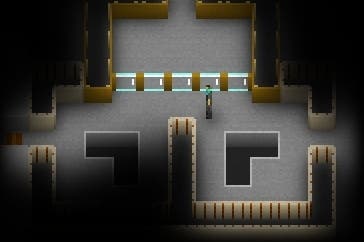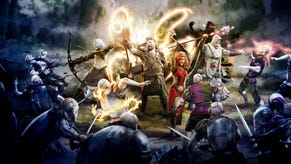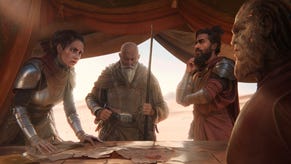For this developer, Steam sales "screw your fans"
The Castle Doctrine creator Jason Rohrer makes his point.
For many, Steam's popular sales make Valve's digital platform the best in the business. Only last night, Valve announced Steam had increased its already impressive active account number to a whopping 75 million - a figure boosted by the growing popularity of sales. It's clear, Steam sales are great - but one developer has a different opinion.
That developer is Jason Rohrer, maker of massively-multiplayer turn-based game of burglary and defense The Castle Doctrine. The game is due out on Steam on 29th January 2014, but don't expect it to appear in a Steam sale afterwards. Why? Because, according to Rohrer, "sales screw your fans".
He made his point in a blog post titled: "Why Rampant Sales are Bad for Players."
"Your fans love your games and eagerly await your next release," he said. "They want to get your game as soon as it comes out, at full price. But they are foolish to do that, because a sale is right around the corner. Even in economic terms, the extra utility of playing the game early, at release, is not big enough to offset the extra cost for most people.
"It makes more sense to wait, unless they love you and your work so much that they're willing to throw economic reason out the window. It's nice to have fans that love your work that much. And these are the fans that you kick in the teeth when you put your game on sale."
Rohrer said the "culture of rampant sales is a culture of waiting", adding launch weeks become "weak". He reckons developers come to depend on sales for financial survival, pointing to the statistics derived from his game Inside a Star-filled Sky.
"This waiting game is likely decimating your player base and critical mass at launch by spreading new players out over time," he said.
"And your fans, who are silly enough to buy the game at launch and waste money, get to participate in a weaker, smaller player community."
Rohrer said there's the "possibility" that this culture of sales reduces developer revenue over the long term. "If just half of the players who buy the game during a 50 per cent-off sale would have bought the game at full price if that was their only option, we'd already have a wash," she said. "What fraction of sale-waiting players fall into this category? I suspect way more than half. The picture gets even worse for 75 per cent-off sales."
So, what's to be done? Perhaps people who buy random games during sales and never play them will make up the shortfall, Rohrer suggests, but even so, this would not be a good thing. "It's just people being tricked into wasting money on stuff they don't want or need. Better that they spent that money on one full-price game that they really want rather than four 75 per cent-off impulse buys to add to their backlog."
Rohrer qualified his post by pointing out that Valve does not force developers to put their games on sale, and that video game discounting is as old as video games themselves.
The upshot of all this is that The Castle Doctrine will be $16 when it launches on Steam and forever more, but during alpha testing through to launch, it's 50 per cent off - at $8. And during launch week the game has a 25 per cent discount to $12. After launch week the game will rise to full price.
Rohrer hopes for revenue spikes later in the life of the game, right before announced price hikes. "But there are no surprises, so no one feels screwed by the process."
"In the case of The Castle Doctrine, the 'ever rising' price model was a perfect fit for other reasons. As a massively-multiplayer server-based game, it required extensive testing before launch. I could reward those early testers with the biggest discount.
"Also, as a server-based game, each additional 'copy' sold is not without cost to me: it's one more player logging into the server, and potentially one more player who will need tech support during an outage. I can't just pepper the ground with cheap or free download codes, because download codes are actually lifetime accounts."
"This waiting game is likely decimating your player base and critical mass at launch by spreading new players out over time."
Rohrer isn't the first person to question the value of Steam sales. In 2012 Valve's digital distribution rival EA said Steam sales "cheapen" intellectual property.
EA, like Rohrer, suggested Steam's reputation for deep discounting meant many gamers do not buy games on day one, instead waiting for a sale that may come four or five months down the line. This, EA claimed, has a negative impact on publishers and game creators.
But, speaking with Eurogamer, Valve's then business development chief Jason Holtman countered this view.
Holtman's response was this: "If all that were true, nobody would ever pre-purchase a game ever on Steam, ever again. You just wouldn't. You would in the back of your mind be like, okay, in six months to a year, maybe it'll be 50 per cent off on a day or a weekend or during one of our seasonal promotions. Probably true. But our pre-orders are bigger than they used to be. Tons of people, right? And our day one sales are bigger than they used to be. Our first week, second week, third week, all those are bigger.
"That points out that what's happened with those sales is, you've probably caught somebody and introduced them to a game when they haven't had it, and they've played it, and the next time the franchise comes out or the next move from that publisher, the next move from the partner, they've just become more avid gamers.
"The trade-off they're making is a time trade-off."










.png?width=291&height=164&fit=crop&quality=80&format=jpg&auto=webp)